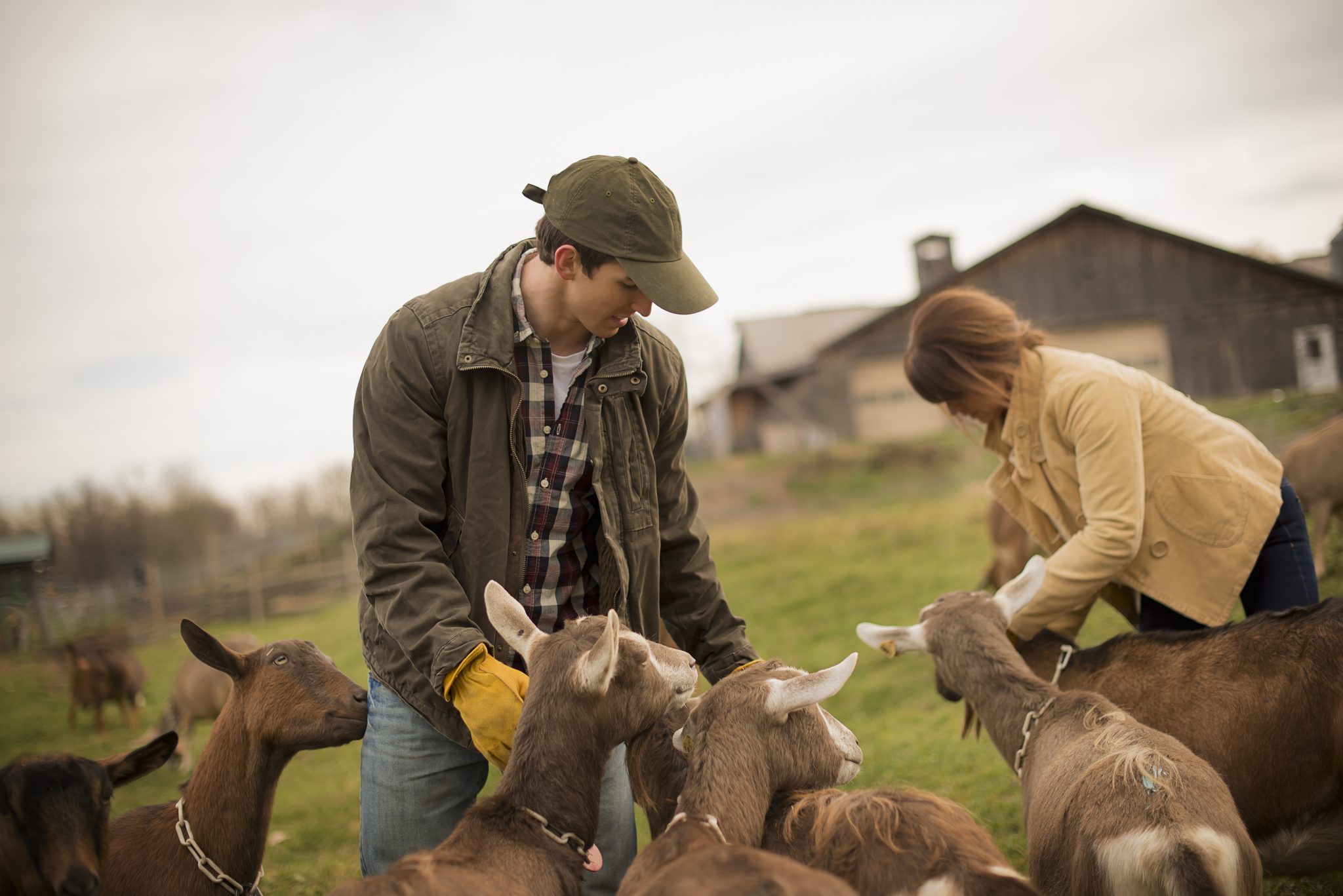Farming

Biosecurity is a system of management practices that reduces the introduction of infectious diseases onto a farm and decreases the transmission of disease within the goat herd.
Infectious diseases, such as caseous lymphadenitis (CL), caprine arthritis encephalitis (CAE), and pathogens that cause respiratory disease, are most commonly introduced into a herd by the addition of new animals. Other sources of infection include people, vehicles, or equipment with use on or previous contact with another goat farm.
Among the most effective ways to prevent the introduction of infectious diseases is to maintain a closed herd into which no animals from outside sources are introduced. Smaller herds may find it difficult to remain entirely closed and may have to rely on the introduction of new animals for breeding purposes or herd expansion. Under these circumstances, new animals should be purchased only from reputable sources and should be maintained in an isolated area of the farm for at least 30 days.
The purchase of animals at auction barns is not recommended because there is typically insufficient historical information available as to the reason for sale, and animals may be exposed to a variety of transmissible diseases while awaiting the sale. Isolation of new animals for at least 30 days at a quarantine site that prevents direct or indirect contact with the resident herd allows inspection of animals for clinical signs of disease that develop after purchase. All new additions should be inspected for abscesses, scars, lameness, udder health, and parasite status. Fecal samples should be collected and examined for current parasite burden. A fecal egg count reduction test (first fecal egg count before deworming, second fecal egg count 10 to 14 days later) can provide information about dewormer resistance in newly purchased animals. To avoid introducing dewormer resistance into the herd, newly purchased animals can be dewormed with all three available classes of dewormers (benzimidazoles, macrocyclic lactones, and imidazothiazoles), but must be retested before being turned out with resident goats.
Dewormed goats should never be turned out onto a clean (previously unused) pasture but should be kept in pastures that are in current use to avoid perpetuation of residual resistant parasites.
Unfortunately, many producers have not been able to establish a working relationship with a local veterinarian experienced in livestock production. All efforts, however, should be made to establish this relationship. In addition to treating sick animals, veterinarians can advise producers on herd health management procedures, including facility design, vaccination programs, parasite control, nutrition, milking operation, and biosecurity. Veterinary inspection of new additions before introduction into the resident herd is among the most important measures of biosecurity.

Goat farms may receive a variety of visitors including veterinarians, Extension personnel, other goat farmers, and customers. Vehicles and people can be effective modes of transmission of infectious diseases. Therefore, visitors should be directed to park away from goat housing areas and should wash their hands before handling animals. People who have been in recent contact with other goats should also be asked to wear farm-owned coveralls and rubber boots before handling resident goats.
Most infectious diseases on goat operations only affect small ruminants. But some parasites, viruses, and bacteria can also be found in other species. While coccidia are species-specific and only affect goats, other intestinal parasites (nematodes) can be spread by other species including sheep, llamas, alpacas, cattle, and deer. Therefore, other small ruminants that are present on a goat farm should also be part of a comprehensive parasite management strategy. Contact with wildlife should be limited when possible; however, there are relatively few diseases of goats for which wildlife are a reservoir.
Prevention of disease transmission within the herd requires similar strategies used for prevention of disease introduction to the farm. Animals and farm personnel are the most important mode of disease transmission within the resident herd. When sick animals are present, they should be segregated into a quarantine facility. Personnel caring for sick animals should not contact healthy animals without cleaning hands and boots and changing into clean clothing. Young animals are most susceptible to infectious diseases and should always be handled before caring for adult animals that may carry pathogens without showing clinical signs of infection. Instruments used for procedures on animals (dehorners, castration instruments, etc.) should be cleaned following use on each animal, and needles should not be used for more than one animal. Infectious causes of mastitis can be prevented by proper milking hygiene including washing of hands, udder cleanliness, and use of iodine-based teat dips. Does that have clinical signs of mastitis should always be milked after healthy does and before sanitizing of the milking equipment.
Thomas Passler, DVM, Associate Professor, Department of Clinical Sciences, College of Veterinary Medicine; Jenna Bayne, DVM, Clinical Lecturer, Department of Clinical Sciences, College of Veterinary Medicine; and Boyd Brady, Extension Specialist, Dairy Science, all with Auburn University
Reviewed July 2021, Biosecurity & Disease Prevention in Dairy Goats, ANR-2492

